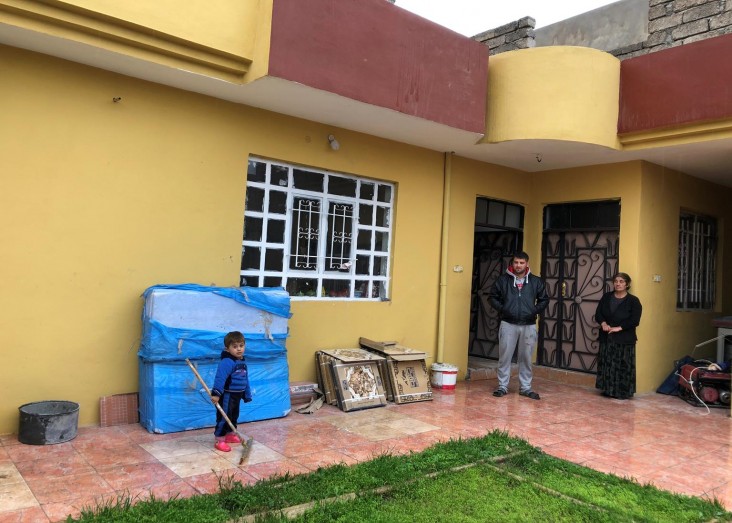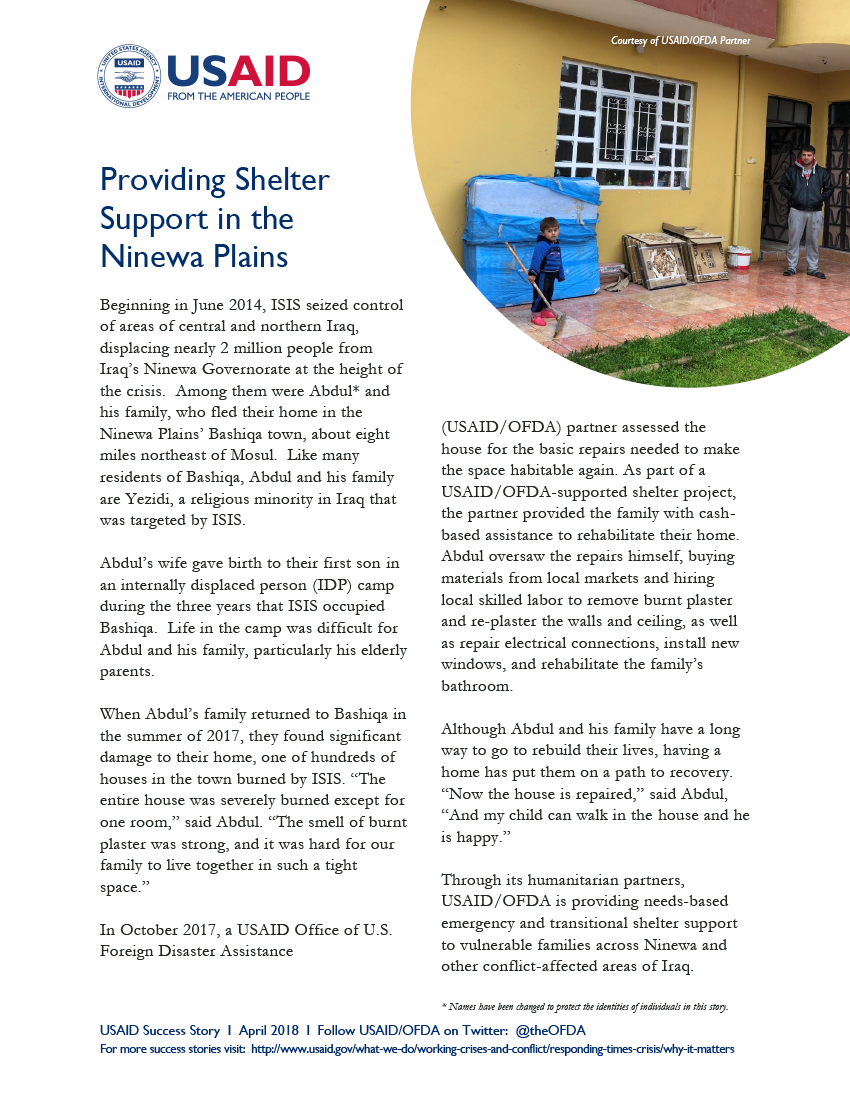- What We Do
- Agriculture and Food Security
- Democracy, Human Rights and Governance
- Economic Growth and Trade
- Education
- Environment and Global Climate Change
- Gender Equality and Women's Empowerment
- Global Health
- Humanitarian Assistance
- Transformation at USAID
- Water and Sanitation
- Working in Crises and Conflict
- U.S. Global Development Lab
Speeches Shim

Beginning in June 2014, ISIS seized control of areas of central and northern Iraq, displacing nearly 2 million people from Iraq’s Ninewa Governorate at the height of the crisis. Among them were Abdul* and his family, who fled their home in the Ninewa Plains’ Bashiqa town, about eight miles northeast of Mosul. Like many residents of Bashiqa, Abdul and his family are Yezidi, a religious minority in Iraq that was targeted by ISIS.
Abdul’s wife gave birth to their first son in an internally displaced person (IDP) camp during the three years that ISIS occupied Bashiqa. Life in the camp was difficult for Abdul and his family, particularly his elderly parents.
When Abdul’s family returned to Bashiqa in the summer of 2017, they found significant damage to their home, one of hundreds of houses in the town burned by ISIS. “The entire house was severely burned except for one room,” said Abdul. “The smell of burnt plaster was strong, and it was hard for our family to live together in such a tight space.”
In October 2017, a USAID Office of U.S. Foreign Disaster Assistance (USAID/OFDA) partner assessed the house for the basic repairs needed to make the space habitable again. As part of a USAID/OFDA-supported shelter project, the partner provided the family with cashbased assistance to rehabilitate their home.
Abdul oversaw the repairs himself, buying materials from local markets and hiring local skilled labor to remove burnt plaster and re-plaster the walls and ceiling, as well as repair electrical connections, install new windows, and rehabilitate the family’s bathroom.
Although Abdul and his family have a long way to go to rebuild their lives, having a home has put them on a path to recovery. “Now the house is repaired,” said Abdul, “And my child can walk in the house and he is happy.”


Comment
Make a general inquiry or suggest an improvement.